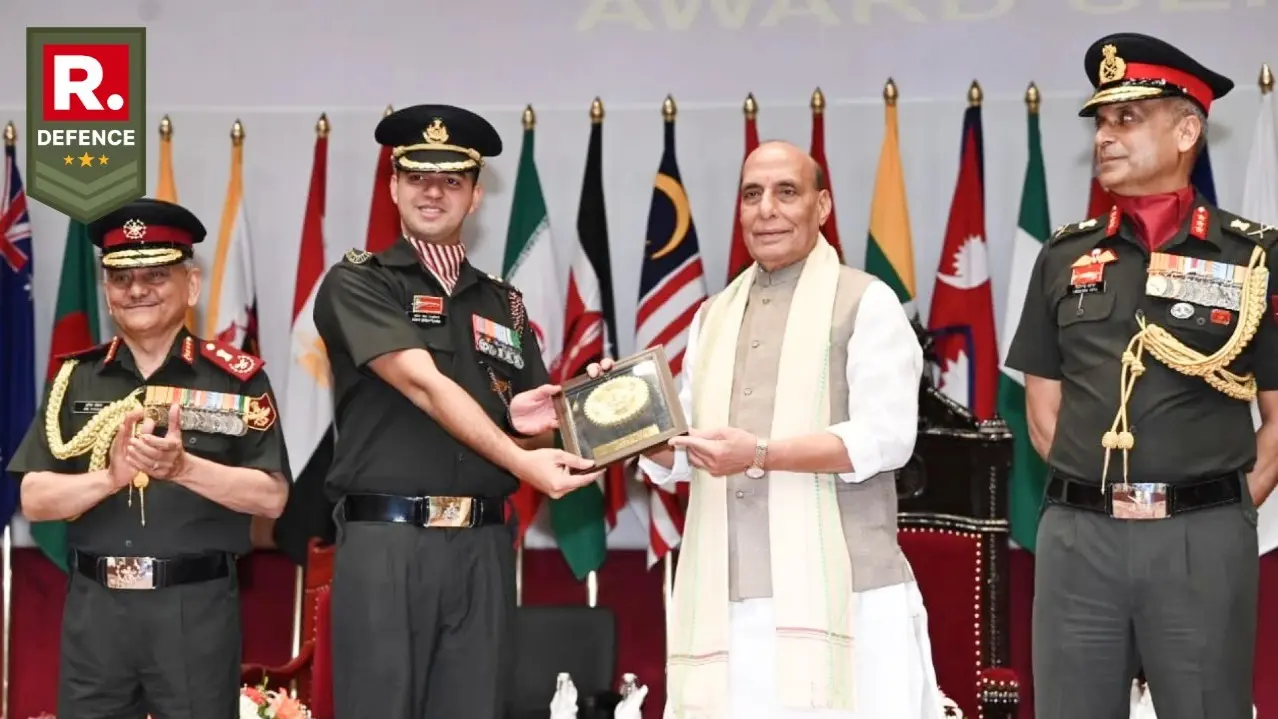Updated 21 April 2025 at 10:55 IST
India’s Top Military Commanders Converge in Delhi for Second Tri-Service Future War Course
New Delhi is set to host the second Tri-services Future Warfare Course from April 21 to May 09, 2025, at the Manekshaw Centre.
- Defence News
- 4 min read

New Delhi, India – The Indian Armed Forces are once again convening their top minds to chart the trajectory of future combat scenarios. The second edition of the Tri-services Future Warfare Course will commence at Manekshaw Centre, New Delhi, from April 21 to May 09, 2025, continuing the momentum built during the inaugural edition in September 2024. The course is being held under the aegis of Headquarters Integrated Defence Staff (HQ IDS) and coordinated by the Tri-services think-tank, Centre for Joint Warfare Studies (CENJOWS).
Backed by the strategic vision of Chief of Defence Staff General Anil Chauhan, the course is structured to bring together operational commanders, doctrinal thinkers, defence technologists and industry innovators. The emphasis is on preparing senior and mid-level officers to face the complex demands of modern warfighting that now straddle kinetic and non-kinetic domains. This year, the curriculum has been significantly expanded, incorporating a deep dive into technology-driven shifts in doctrines, tactics and operational planning.
Strategic Learning for Officers Across Ranks and Roles Gains Centre Stage
The course’s rank-agnostic approach, which had made headlines during its debut edition, remains intact. Officers from the ranks of Major General to Major, across the Army, Navy, and Air Force, will participate alongside counterparts from DRDO, various Ministry of Defence departments, and representatives from the Indian defence industry, including start-ups, MSMEs, DPSUs, and the private sector. The idea is to break hierarchical silos and build joint operational understanding through dialogue and scenario-based simulations.

Sessions will tackle the impact of disruptive technologies—AI, quantum computing, swarm drones, directed energy weapons, and electronic warfare systems—on force structures, command hierarchies, and multi-domain operations. Officers will also debate emerging concepts like theatre commands, decisive battle zones, and the future of grey-zone conflict where information warfare is as lethal as kinetic action. The course offers a space to test evolving doctrines against real-world contingencies.
Advertisement
DRDO, Startups, and War Colleges Align for India’s Next-Gen Warfighting Playbook
One of the course’s core objectives is to synchronize operational priorities with indigenous R&D and industrial capabilities. That’s where the role of CENJOWS and its partnering institutions comes in. According to senior officials, the course will help channel operational feedback into India’s defence innovation pipelines. Participants will be exposed to prototype demonstrations, systems integration walkthroughs, and the logistics challenges of fielding advanced systems in remote theatres.
Industry participants—especially those from private sector defence tech firms and AI-enabled warfare start-ups—are expected to showcase cutting-edge innovations ranging from ISR capabilities, and autonomous platforms, to combat cloud architecture. The goal is to build a pipeline where warfighters influence how systems are designed, not just how they’re used. The course also includes special modules on cyber resilience, information dominance, and space-based force multipliers.
Advertisement
Forging a Future-Ready Force Through Joint Learning and Tech-Driven Doctrines
The overarching theme this year is to bridge the growing gap between legacy doctrine and real-time tech infusion on the battlefield. While the services are pushing for jointness in theatre commands, programs like this are laying the cognitive groundwork for actual interoperability. Officers will also interact with strategic analysts, global security experts and retired commanders who bring an operational-experience-based perspective to future scenarios.

By bringing together thinkers and practitioners under one roof, the course aims to empower military leaders to take strategic initiative under ambiguity—an essential trait as the battlespace becomes increasingly unpredictable. From disruptive drone swarms to denial-based hybrid warfare, the scenarios covered are not hypothetical—they reflect real-time global and regional trends.
The second edition marks a decisive step in India’s warfighting evolution. With growing external threats and shrinking decision cycles, India’s military leadership must learn to fight fast, smart and together. The Future Warfare Course may still be young, but it is already shaping up to be the Armed Forces' most potent platform for aligning ideas, capabilities, and operational readiness in a multi-domain environment.
Watch - Bravest of the Brave
Published By : Yuvraj Tyagi
Published On: 21 April 2025 at 10:48 IST
